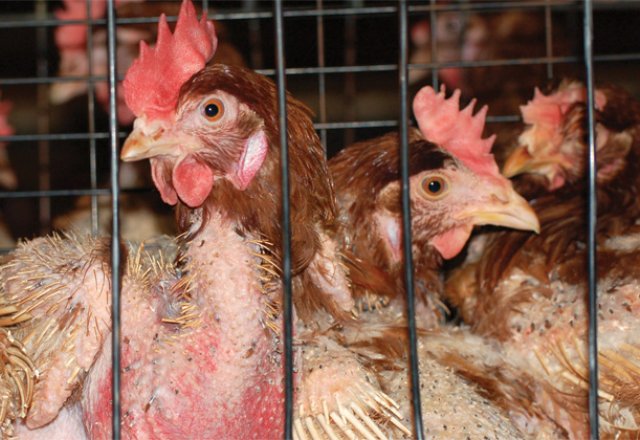
Factory farming - the hard truths

According to Animals Australia
Factory-farmed chickens
Over 50 years ago it took 98 days for a chicken to grow to 1.6 kg. By 1986, due to selective breeding, it only took 37 days. Baby birds, who still chirp and have soft feathers, have the bodies of adult birds. Overcrowding is a major problem as stocking densities of 20 birds or 40kg per square metre is allowed. This is common towards the end of their short life in the shed. As the chickens near their target weight, the floor of the shed can barely be seen as it is carpeted with birds.
Intensive pig farming
Intensive piggeries fail to provide for the physical and behavioural wellbeing of pigs. Intensively housed pigs suffer from stress, increased susceptibility to disease, leg deformities and behavioural deprivation. Female pigs for breeding are denied access to nesting material and are kept in single crates with insufficient room to move or turn around. When piglets are born, the design of the crate denies them appropriate and full physical contact with their mother. Piglets have their teeth clipped, ears notched and tails docked, all without anaesthetic.
Intensive dairy farming
In intensive dairy farms, cows are usually artificially inseminated to increase their breeding rates. Unnaturally frequent pregnancies along with insemination with semen from large breeds (for the veal industry) cause difficult and painful calving and may cause internal organ damage. As a result, a dairy cow’s life expectancy is significantly shortened. Calves are generally separated from their mothers shortly after birth and killed for ‘baby veal’, or raised artificially for the veal industry or herd replacement. Separation causes both mother and offspring to suffer emotionally and physically.
Photo credit: Thinkstock


